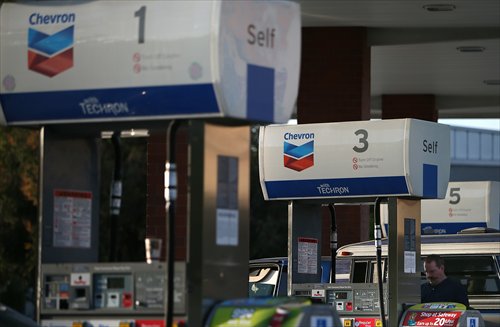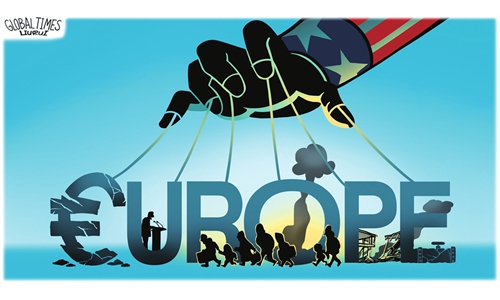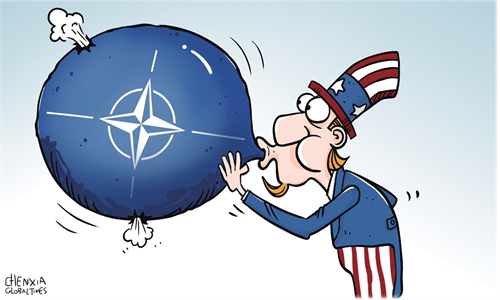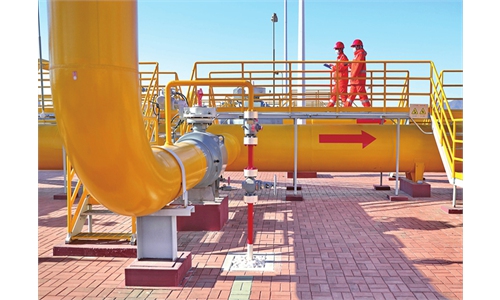
The Chevron logo is displayed on gas pumps at a Chevron gas station. File photo: AFP
The ban on Russian domestic oil exports under contracts that include a price cap on its crude imposed by the Russian government took effect on Wednesday and will last until July 1, in response to the price cap mechanism imposed by the West in December.
Analysts noted that the ban may significantly affect global industrial chains as Russia remains a major world supplier, and they expect a rise in crude prices and a potential risk of inflation.
The implementation of the ban was approved on Monday, which was a decree issued by Russian President Vladimir Putin on December 27, 2022, Tass reported.
The G7, EU and Australia have imposed bans on the use of Western-supplied maritime insurance, finance and brokering for seaborne Russian-origin crude oil on a maximum price of $60 per barrel, which took effect after December 5, per official statements from the EU and G7.
The ban of Russia may lead to a rise in international crude prices while having a major impact on the supply chain as relevant infrastructure facilities in the EU will no longer be able to operate, Lin Boqiang, director of the China Center for Energy Economics Research at Xiamen University, told the Global Times on Wednesday.
The global benchmark Brent crude closed at $84.49 a barrel on Tuesday, down 0.48 percent.
Lin added that Russia may cut down its oil production as EU members are its top export destinations, and Russia needs to seek new trading partners and construct new facilities.
Russia has been diverting its trade away from the EU mainly to Asia and Latin America. The demand for Russian oil from Asia is strong, with Urals crude loadings bound for Asia in January to reach 7 million tons - up 2 million tons from December, Reuters reported on Monday.
Russia is unlikely to coordinate with OPEC countries over oil production and will find new partners, according to Lin, noting that the EU may turn to the US for future cooperation.
As for the potential inflationary risks, Lin noted that it will depend on the economic development and demand of the West. If EU economic growth remains stable, there may be a risk of inflation affected by growing demand and prices.
In terms of global crude prices, Lin foresees an increase to about $70 to $80 per barrel. He said that a determining factor for oil prices will be whether the US and other major Western economies will enter a recession.
By March 1, the Ministry of Energy and the Ministry of Finance of the Russian Federation must approve the procedure for monitoring prices for Russian oil supplied for export, while Russian exporting companies are required to provide monthly information on contracts, prices and data on monitoring the non-use of the price fixing mechanism to the end buyer, according to Tass.
The price cap will take effect after February 5 for refined petroleum products, according to the EU. The EU is floating a plan to cap the price of Russian diesel at $100 a barrel, Bloomberg reported.



